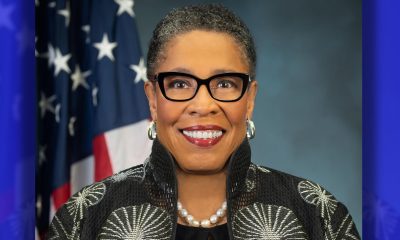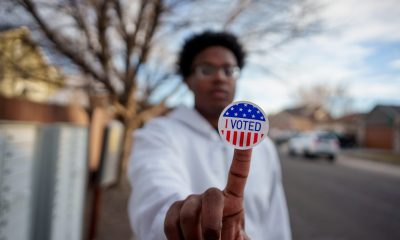#NNPA BlackPress
Attorneys Prepare Uphill Battle to Win Freedom for Bill Cosby
NNPA NEWSWIRE — Still, Cosby faces an uphill battle in his bid for freedom, according to several experts who told NNPA Newswire this week that as many as 90 percent of the myriad of appeals heard are normally rejected.
By Stacy M. Brown, NNPA Newswire Correspondent
@StacyBrownMedia
Bill Cosby’s lawyers have a date with the Pennsylvania Superior Court on Friday, Jan. 18.
While nothing earth-shattering is expected, the briefing counts among the initial steps that the attorneys must take if the imprisoned entertainer is to win his appeal. However, getting a criminal conviction overturned in the United States is one of the most daunting challenges in the American Justice System.
Cosby, 81, was convicted in April 2018 of three counts of aggravated indecent assault.
In September, he was sentenced to three to 10 years in prison which led many defense attorneys and others to blast both the conviction – which contained no physical and very little circumstantial evidence – and the sentence – at 81, Cosby had previously never run afoul of the law and he’s blind – as unjust.
Still, Cosby faces an uphill battle in his bid for freedom, according to several experts who told NNPA Newswire this week that as many as 90 percent of the myriad of appeals heard are normally rejected.
“The problem with criminal appeals is that a criminal appeal does not exist to ensure that a just, fair, honest, or equitable verdict exists,” said Attorney Benjamin F. Schwartz of the Dover, DE., firm of Schwartz and Schwartz.
“If someone tells you that’s the purpose of an appeal, they are lying to you. It’s not like the appellate judges are looking at the trial transcripts and trying to figure out if the accused person got a fair trial or if his lawyer screwed up the case,” Schwartz said.
In filing their appeal last month, Cosby’s attorneys cited more than 10 trial errors by Montgomery County, Pa., Judge Steven T. O’Neill.
And, if O’Neill did indeed err, the lawyers had better cite something that could be deemed so egregious that it moves the appellate court toward reversal.
“Trial judges make mistakes all the time,” Schwartz said.
“The appeal exists to make sure that the trial judge didn’t make a bad mistake, the type that would have ruined the accused ability to get a fair trial.”
To win a direct appeal after a criminal conviction, lawyers must prove that without the error by the trial judge, the case would have resulted in an acquittal, Schwartz said.
Falen O. Cox, a partner of the Georgia-based firm Cox<a href=”http://www.crmattorneys.com/”>, Rodman & Middleton, LLC</a>, has practiced appeals before the Georgia Court of Appeals and Supreme Court of Georgia for more than eight years.
Cox, an African American female attorney, said more than 90 percent of criminal convictions in the Peach State are affirmed.
“The culprit is the principal/theory of ‘harmless error,’” Cox said.
“Generally an appeal focuses on mistakes that were made by the prosecutor, the judge, defense attorney and the jury.
“For example, perhaps the prosecutor said something in a closing argument that the rules do not allow – a mistake, the defense attorney does not object – also a mistake, defense counsel does, however, object when the prosecution calls a witness who testifies about something that another witness already testified about, the judge overrules that objection but it should have been sustained because the testimony was cumulative and bolstering because hearing a co-sign makes the jury more likely to believe what the first witness said, which is also mistake,” Cox said.
When the appellate lawyers reviews the file, he or she raises all of those mistakes as error on appeal and includes it in the brief – things that happened that should not have happened – mistakes other people made during the course of defendant’s trial.
“Appellate counsel argues that because of these errors the conviction should be overturned. On appeal, the appellate court may acknowledge, and agree that all of the mistakes mentioned above were made. However, the appellate court can acknowledge this and still deny the defendant’s appeal by citing ‘harmless error,’” she said.
Further making it tough to win an appeal is that the standards and rules governing appeals are heavily stacked against the defendant, said Nora V. Demleitner, a Roy L. Steinheimer Jr. Professor of Law at Washington and Lee University in Virginia.
“Only rarely does the defendant appeal from a guilty plea and when they do so, the appeal tends to focus on the type or length of the sentence imposed,” Demleitner said.
Part of Cosby’s appeal does attack the length of sentencing where the Pennsylvania Code typically recommends anywhere from probation to one-to-three years in prison.
“The reasons for an appeal upon a trial conviction tend to be limited. After all, our appeals courts – in contrast to those in civil law countries, like Germany or France – don’t do a second review of the facts in a case,” Demleitner said.
“In a jury system, where the decision-makers don’t provide any reasoning for their decision, that would be virtually impossible to do. Appeals therefore are limited to legal issues and here the burdens to overrule a decision by the trial court is a heavy one,” she said, noting that one of the burdens include abuse of discretion.
“So, it is frequently the standard that applies on appeal that bedevils a criminal defendant. It sets up an insurmountable hurdle. In effect, an appellate court may come out differently if it decided the question on its own, but it doesn’t disagree enough to be able to overturn the trial court’s decision on appeal,” Demleitner said.
Although at trial the burden is on the prosecution to prove beyond reasonable doubt, once convicted, if arguing the facts were insufficient at trial, the burden is now on the defendant to establish on appeal that the trial judge or jury’s finding was clearly erroneous or substantial evidence, said Matt C. Pinsker, an adjunct professor of Homeland Security and Criminal Justice at the L. Douglas Wilder School of Government and Public Affairs at Virginia Commonwealth University.
However, Pinsker said, “if it is a question of a matter of which judges have discretion, such as an evidentiary matter, the appeals courts are legally required to give discretion to the trial judge, especially considering the appellate judges were not there in person to personally observe and hear the case.”
If it is a legal question like how the trial judge interpreted the law, it is then reviewed as “de novo,” meaning without any deference or consideration to how the trial judge ruled. Pinsker said.
“Another issue is that many times, not only must the defense meet the legal standard on appeal, but many times they must also show that the error of the trial court was prejudicial, and that the case would have been decided differently had the lower court ruled properly,” he said.
“There are often cases where on appeal the appellate judges agree with the defense that the trial court made a mistake but opine that would not have changed the outcome.”
Paul Wallin, a senior partner at <a href=”https://www.wklaw.com/”>Wallin & Klarich</a>with 40 years of appellate work under his belt, said Court of Appeals Justices are seasoned lawyers before they become judges and most have been trial judges for years before becoming appeal justices.
When they reach a decision to reverse or affirm an accused criminal conviction, they do so based upon the law that they are bound to uphold and without consideration for the feelings of anyone, including hurting the feelings of the trial judge or any other person, Wallin said.
“However, this does not mean that Court of Appeals Justices do not get it right all the time. This is why we have the [State] Supreme Court and the U.S. Supreme Court,” he said.
Wallin continued:
“In some cases, the Court of Appeals decision will be to uphold the conviction and then the State Supreme or U.S. Supreme Court will reverse the conviction and provide the defendant the chance at a new trial.
“We have been handling appellate matters for more than 35 years, and we have seen first-hand that you should never stop fighting for your freedom.”
#NNPA BlackPress
Beloved Actor and Activist Louis Cameron Gossett Jr. Dies at 87
NNPA NEWSWIRE — Louis Gossett Jr., the groundbreaking actor whose career spanned over five decades and who became the first Black actor to win an Academy Award as Best Supporting Actor for his memorable role in “An Officer and a Gentleman,” has died. Gossett, who was born on May 27, 1936, in Brooklyn, N.Y., was 87. Recognized early on for his resilience and nearly unmatched determination, Gossett arrived in Los Angeles in 1967 after a stint on Broadway.
The post Beloved Actor and Activist Louis Cameron Gossett Jr. Dies at 87 first appeared on BlackPressUSA.

By Stacy M. Brown
NNPA Newswire Senior National Correspondent
@StacyBrownMedia
Louis Gossett Jr., the groundbreaking actor whose career spanned over five decades and who became the first Black actor to win an Academy Award as Best Supporting Actor for his memorable role in “An Officer and a Gentleman,” has died. Gossett, who was born on May 27, 1936, in Brooklyn, N.Y., was 87. Recognized early on for his resilience and nearly unmatched determination, Gossett arrived in Los Angeles in 1967 after a stint on Broadway.
He sometimes spoke of being pulled over by law enforcement en route to Beverly Hills, once being handcuffed to a tree, which he remembered as a jarring introduction to the racial tensions of Hollywood. In his memoir “An Actor and a Gentleman,” Gossett recounted the ordeal, noting the challenges faced by Black artists in the industry. Despite the hurdles, Gossett’s talent shone brightly, earning him acclaim in groundbreaking productions such as “A Raisin in the Sun” alongside Sidney Poitier. His Emmy-winning portrayal of Fiddler in “Roots” solidified his status as a trailblazer, navigating a landscape fraught with racial prejudice.
According to the HistoryMakers, which interviewed him in 2005, Gossett’s journey into the limelight began during his formative years at PS 135 and Mark Twain Junior High School, where he demonstrated early leadership as the student body president. His passion for the arts blossomed when he starred in a “You Can’t Take It With You” production at Abraham Lincoln High School, catching the attention of talent scouts who propelled him onto Broadway’s stage in “Take A Giant Step.” His stellar performance earned him the prestigious Donaldson Award for Best Newcomer to Theatre in 1952. Though initially drawn to sports, Gossett’s towering 6’4” frame and athletic prowess led him to receive a basketball scholarship at New York University. Despite being drafted by the New York Knicks in 1958, Gossett pursued his love for acting, honing his craft at The Actors Studio under the tutelage of luminaries like John Sticks and Peggy Fury.
In 1961, Gossett’s talent caught the eye of Broadway directors, leading to roles in acclaimed productions such as “Raisin in the Sun” and “The Blacks,” alongside legends like James Earl Jones, Cicely Tyson, Roscoe Lee Brown, and Maya Angelou. Transitioning seamlessly to television, Gossett graced small screens with appearances in notable shows like “The Bush Baby” and “Companions in Nightmare.” Gossett’s silver screen breakthrough came with his role in “The Landlord,” paving the way for a prolific filmography that spanned over 50 movies and hundreds of television shows. From “Skin Game” to “Lackawanna Blues,” Gossett captivated audiences with his commanding presence and versatile performances.
However, his portrayal of “Fiddler” in Alex Haley’s groundbreaking miniseries “Roots” earned Gossett critical acclaim, including an Emmy Award. The HistoryMakers noted that his golden touch extended to the big screen, where his role as Sergeant Emil Foley in “An Officer and a Gentleman” earned him an Academy Award for Best Supporting Actor, making him a trailblazer in Hollywood history.
Beyond the glitz and glamour of Hollywood, Gossett was deeply committed to community activism. In 1964, he co-founded a theater group for troubled youth alongside James Earl Jones and Paul Sorvino, setting the stage for his lifelong dedication to mentoring and inspiring the next generation. Gossett’s tireless advocacy for racial equality culminated in the establishment of Eracism, a nonprofit organization dedicated to combating racism both domestically and abroad. Throughout his illustrious career, Gossett remained a beacon of strength and resilience, using his platform to uplift marginalized voices and champion social change. Gossett is survived by his children, Satie and Sharron.
The post Beloved Actor and Activist Louis Cameron Gossett Jr. Dies at 87 first appeared on BlackPressUSA.
#NNPA BlackPress
COMMENTARY: D.C. Crime Bill Fails to Address Root Causes of Violence and Incarceration
WASHINGTON INFORMER — The D.C. crime bill and so many others like it are reminiscent of the ‘94 crime bill, which produced new and harsher criminal sentences, helped deploy thousands of police and surveilling methods in Black and brown communities, and incentivized more states to build prisons through a massive infusion of federal funding. While it is not at the root of mass incarceration, it significantly accelerated it, forcing a generation of Black and brown families into a never-ending cycle of state-sanctioned violence and incarceration.
The post COMMENTARY: D.C. Crime Bill Fails to Address Root Causes of Violence and Incarceration first appeared on BlackPressUSA.

By Kaili Moss and Jillian Burford | Washington Informer
Mayor Bowser has signed the “Secure DC” omnibus bill passed by the D.C. Council last month. But we already know that this bill will be disastrous for all of D.C., especially for Black and brown residents.
While proponents claim that this legislation “will make D.C. residents safer and more secure,” it actually does nothing to address the root of the harm in the first place and instead maintains a cycle of violence, poverty, and broken community ties. The omnibus bill calls for increased surveillance, drug-free zones, and will expand pre-trial detention that will incarcerate people at a significantly higher rate and for an indeterminate amount of time before they are even tried. This bill will roll back decades of nationwide policy reform efforts and initiatives to keep our communities safe and whole, which is completely contradictory to what the “Secure” D.C. bill claims it will do.
What is unfolding in Washington, D.C., is part of a dangerous national trend. We have seen a resurrection of bad crime bills in several jurisdictions across the country — a phenomenon policy experts have named “zombie laws,” which are ineffective, costly, dangerous for communities of color and, most importantly, will not create public safety. Throwing more money into policing while failing to fund preventative measures does not keep us safe.
The D.C. crime bill and so many others like it are reminiscent of the ‘94 crime bill, which produced new and harsher criminal sentences, helped deploy thousands of police and surveilling methods in Black and brown communities, and incentivized more states to build prisons through a massive infusion of federal funding. While it is not at the root of mass incarceration, it significantly accelerated it, forcing a generation of Black and brown families into a never-ending cycle of state-sanctioned violence and incarceration. Thirty years later, despite spending billions each year to enforce these policies with many of these provisions remaining in effect, it has done very little to create long-term preventative solutions. Instead, it placed a permanent moving target on the backs of Black people, and the D.C. crime bill will do the same.
The bill calls for more pretrial detention. When our loved ones are held on pretrial detention, they are held on the presumption of guilt for an indeterminate amount of time before ever seeing a judge, which can destabilize people and their families. According to experts at the Malcolm Weimer Center for Social Policy at Harvard University, just one day in jail can have “devastating consequences.” On any given day, approximately 750,000 people are held in jails across the nation — a number that beats our nation’s capital population by about 100,000. Once detained, people run the risk of losing wages, jobs, housing, mental and health treatments, and time with their families. Studies show that pretrial detention of even a couple of days makes it more likely for that person to be rearrested.
The bill also endangers people by continuing a misguided and dangerous War on Drugs, which will not get drugs off the street, nor will it deter drug use and subsequent substance use disorders (SUDs). Drug policies are a matter of public health and should be treated as such. Many states such as Alabama, Iowa and Wisconsin are treating the current fentanyl crisis as “Crack 2.0,” reintroducing a litany of failed policies that have sent millions to jails and prisons instead of prioritizing harm reduction. Instead, we propose a simple solution: listen to members of the affected communities. Through the Decrim Poverty D.C. Coalition, community members, policy experts and other stakeholders formed a campaign to decriminalize drugs and propose comprehensive legislation to do so.
While there are many concerning provisions within the omnibus bill, car chases pose a direct physical threat to our community members. In July 2023, NBC4 reported that the D.C. Council approved emergency legislation that gave MPD officers the ability to engage in vehicular pursuits with so-called “limited circumstances.” Sgt. Val Barnes, the head of MPD’s carjacking task force, even expressed concern months before the decision, saying, “The department has a pretty strict no-chase policy, and obviously for an urban setting and a major metropolitan city, that’s understandable.” If our law enforcement officers themselves are operating with more concern than our elected officials, what does it say about the omnibus bill’s purported intention to keep us safe?
And what does it mean when the risk of bodily harm is posed by the pursuit itself? On Saturday, Feb. 10, an Eckington resident had a near-miss as a stolen car barreled towards her and her dog on the sidewalk with an MPD officer in pursuit. What responsibility does the city hold if this bystander was hit? What does restitution look like? Why are our elected officials pushing for MPD officers to contradict their own policies?
Just a few summers ago during the uprisings of 2020, we saw a shift in public perspectives on policing and led to legislation aimed at limiting police power after the highly-publicized murders of loved ones Breonna Taylor and George Floyd — both victims of War on Drugs policing and the powers gained from the ’94 crime bill. And yet here we are. These measures do not keep us safe and further endanger the health of our communities. Studies show that communities that focus on harm reduction and improving material conditions have a greater impact on public safety and community health. What’s missing in mainstream conversations about violent crime is the violence that stems from state institutions and structures that perpetuate racial and class inequality. The people of D.C. deserve to feel safe, and that includes feeling safe from the harms enacted by the police.
Kaili Moss is a staff attorney at Advancement Project, a national racial justice and legal organization, and Jillian Burford is a policy organizer at Harriet’s Wildest Dreams.
The post COMMENTARY: D.C. Crime Bill Fails to Address Root Causes of Violence and Incarceration first appeared on BlackPressUSA.
#NNPA BlackPress
Mayor, City Council President React to May 31 Closing of Birmingham-Southern College
THE BIRMINGHAM TIMES — “This is a tragic day for the college, our students, our employees, and our alumni, and an outcome so many have worked tirelessly to prevent,” Rev. Keith Thompson, chairman of the BSC Board of Trustees said in an announcement to alumni. “We understand the devastating impact this has on each of you, and we will now direct our efforts toward ensuring the smoothest possible transition for everyone involved.”
The post Mayor, City Council President React to May 31 Closing of Birmingham-Southern College first appeared on BlackPressUSA.

By Barnett Wright | The Birmingham Times
Birmingham-Southern College will close on May 31, after more than a century as one of the city’s most respected institutions.
“This is a tragic day for the college, our students, our employees, and our alumni, and an outcome so many have worked tirelessly to prevent,” Rev. Keith Thompson, chairman of the BSC Board of Trustees said in an announcement to alumni. “We understand the devastating impact this has on each of you, and we will now direct our efforts toward ensuring the smoothest possible transition for everyone involved.”
There are approximately 700 students enrolled at BSC this semester.
“Word of the decision to close Birmingham Southern College is disappointing and heartbreaking to all of us who recognize it as a stalwart of our community,” Birmingham Mayor Randall Woodfin said in a statement. “I’ve stood alongside members of our City Council to protect this institution and its proud legacy of shaping leaders. It’s frustrating that those values were not shared by lawmakers in Montgomery.”
Birmingham City Council President Darrell O’Quinn said news of the closing was “devastating” on multiple levels.
“This is devastating for the students, faculty members, families and everyone affiliated with this historic institution of higher learning,” he said. “It’s also profoundly distressing for the surrounding community, who will now be living in close proximity to an empty college campus. As we’ve seen with other institutions that have shuttered their doors, we will be entering a difficult chapter following this unfortunate development … We’re approaching this with resilience and a sense of hope that something positive can eventually come from this troubling chapter.”
The school first started as the merger of Southern University and Birmingham College in 1918.
The announcement comes over a year after BSC officials admitted the institution was $38 million in debt. Looking to the Alabama Legislature for help, BSC did not receive any assistance.
This past legislative session, Sen. Jabo Waggoner sponsored a bill to extend a loan to BSC. However, the bill subsequently died on the floor.
Notable BSC alumni include former New York Times editor-in-chief Howell Raines, former U.S. Sen. Howell Heflin and former Alabama Supreme Court Chief Justice Perry O. Hooper Sr.
This story will be updated.
The post Mayor, City Council President React to May 31 Closing of Birmingham-Southern College first appeared on BlackPressUSA.
-

 Activism4 weeks ago
Activism4 weeks agoOakland Post: Week of March 20 – 26, 2024
-

 #NNPA BlackPress3 weeks ago
#NNPA BlackPress3 weeks agoCOMMENTARY: D.C. Crime Bill Fails to Address Root Causes of Violence and Incarceration
-

 #NNPA BlackPress3 weeks ago
#NNPA BlackPress3 weeks agoMayor, City Council President React to May 31 Closing of Birmingham-Southern College
-

 #NNPA BlackPress3 weeks ago
#NNPA BlackPress3 weeks agoCOMMENTARY: Lady Day and The Lights!
-

 #NNPA BlackPress3 weeks ago
#NNPA BlackPress3 weeks agoFrom Raids to Revelations: The Dark Turn in Sean ‘Diddy’ Combs’ Saga
-

 #NNPA BlackPress3 weeks ago
#NNPA BlackPress3 weeks agoBaltimore Key Bridge Catastrophe: A City’s Heartbreak and a Nation’s Alarm
-

 #NNPA BlackPress3 weeks ago
#NNPA BlackPress3 weeks agoBaltimore’s Key Bridge Struck by Ship, Collapses into Water
-

 Activism3 weeks ago
Activism3 weeks agoOakland Post: Week of March 27 – April 2, 2024




















































2 Comments